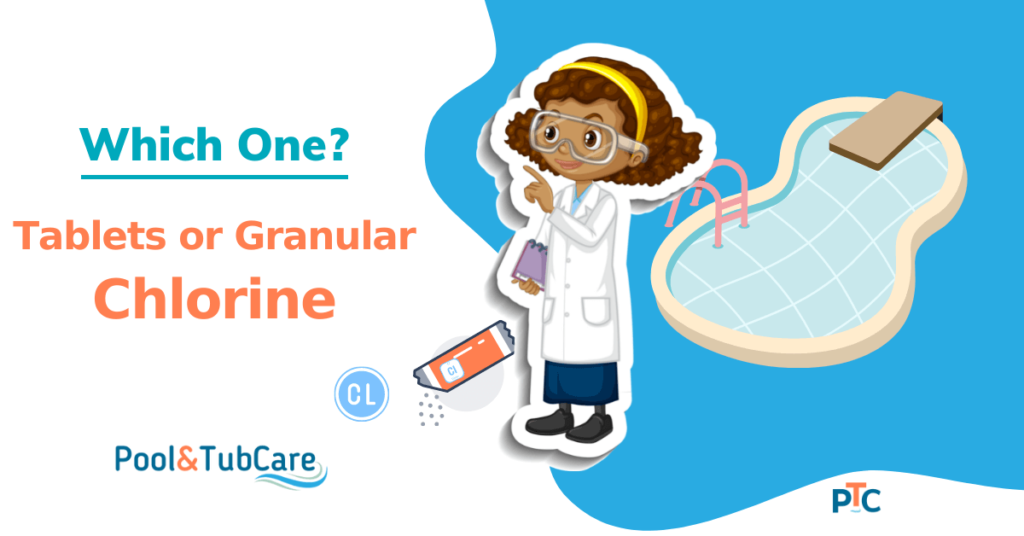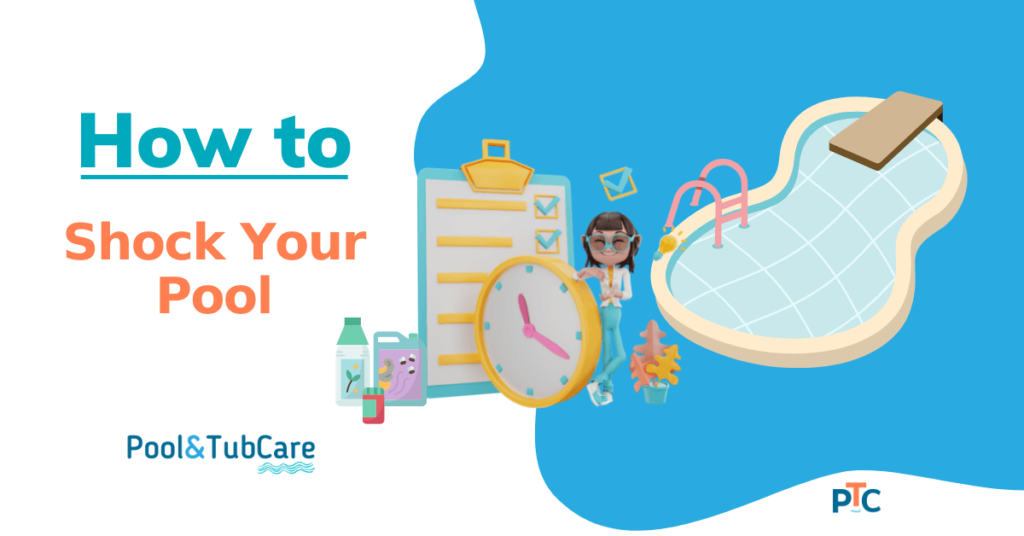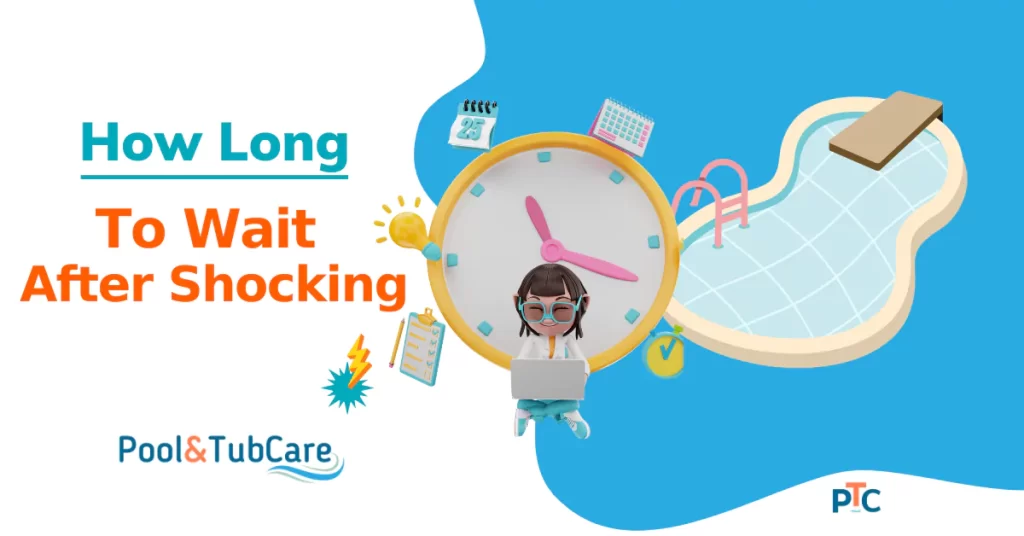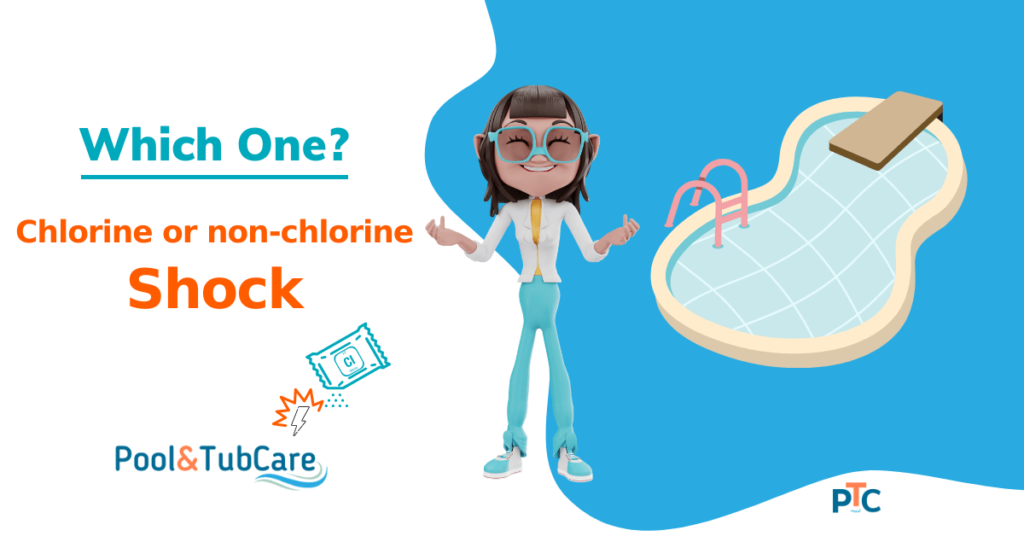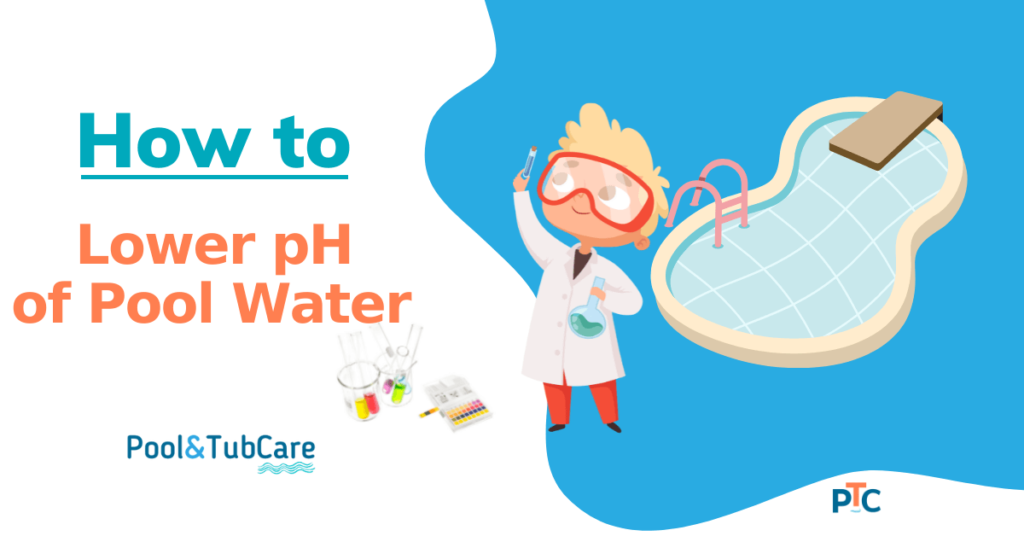Every pool owner knows chlorine is essential to keeping their pool clean. As with most things, there are many options to choose from when deciding which kind of chlorine to use. The two most commonly used chlorine forms are tablets and granules.
A pool owner needs to decide which one to use based on the pool’s needs. Both have their advantages and disadvantages.
Chlorine tablets are highly concentrated (90% chlorine) and last longer. They offer an automated way of keeping chlorine levels balanced in the pool, but it’s difficult to manage fluctuations. On the other hand, granules contain 60 -70% chlorine and dissolve quickly, providing quick action for sanitizing your pool. Though they get depleted quickly, requiring more, granular chlorine is ideal for shocking the pool.
In this article, I will go through the benefits of both so that you can decide which one suits your needs most.
How Chlorine Works
Before we go into details about tablet and granular chlorine, it is important to understand how chlorine works and what different forms of chlorine are in your pool.
Chlorine is a chemical generally in the form of (sodium hypochlorite or NaOCl) and is often referred to as “bleach.”
When you add sodium hypochlorite to water, it quickly dissociates and produces hypochlorous acid (HOCl).
Hypochlorous acid is a strong oxidizer, and it is this property that makes chlorine effective in killing bacteria and other microorganisms.
Related: Best chlorine levels for your pool water!
Types of Chlorine
There are different types of chlorine present in your pool.
Free and Combined
Chlorine also exists in two forms, free chlorine and combined chlorine.
Free chlorine: It is the form of chlorine that is available to kill bacteria and other microorganisms. When you add chlorine to the pool, all the chlorine present in the pool should be in this form. When this chlorine binds with organic matter, it changes into other forms.
Combined chlorine: This is the form of chlorine that is already used up and no longer available for sanitizing your pool. If the levels go combined chlorine goes high, then you need to shock your pool.
Most inexpensive kits measure free chlorine and total chlorine, and the combined chlorine is the difference between total chlorine and free chlorine.
Total Chlorine = Free Chlorine + Combined Chlorine
Stabilized and Unstabilized
Stabilized chlorine: Stabilized chlorine contains cyanuric acid, also known as a stabilizer. Cyanuric acid protects chlorine from the sun.
Without cyanuric acid, the free chlorine is broken down by UV rays (aka sunlight) in a few minutes only.
You may lose almost all the free chlorine in a day full of sunshine without a stabilizer. Cyanuric acid extends the life of chlorine in your pool by six or seven times.
Unstabilized chlorine: It does not contain cyanuric acid. Which means it is not effective in an outdoor pool. Unstabilized chlorine can be used only in indoor pools or spas.
Also, when you are shocking the pool, you can use unstabilized chlorine. It will be a good option for quick action as it can quickly get rid of a high load of organic waste.
Chlorine Granules and Chlorine Tablets
Now that we know the different types of chlorine let’s compare chlorine tablets and granular chlorine.
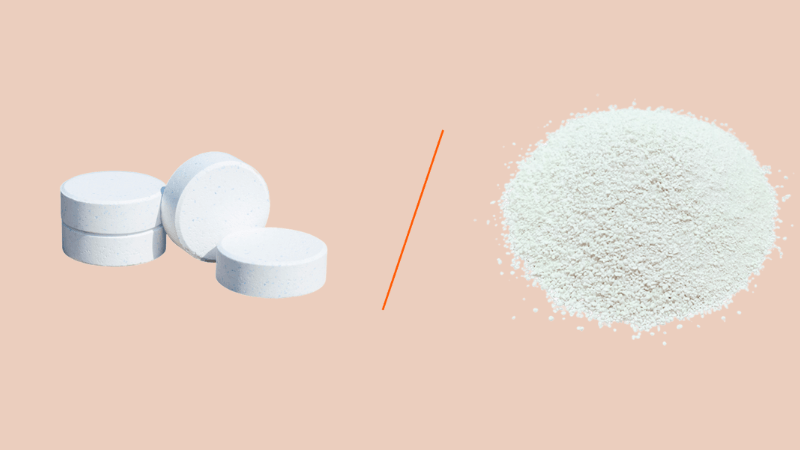
Chlorine Tablets:
Chlorine tablets are made of around 90% of chlorine. Due to the high concentration, it takes some time for tablets to dissolve and release chlorine into the water. Once it starts releasing, it can last around five or six days, depending on the size.
It would be best to use an automated chlorinator to keep these tablets, as it releases them slowly without creating pockets of high concentration chlorine. Floaters are another option to keep tablets that is very cheap also.
Related: How to use chlorine tablets in your pool!
There are a few advantages and disadvantages of using chlorine tablets.
Advantages of Chlorine Tablets
Easy to handle
Chlorine tablets are easy to handle as they are solid and small. You can carry and store it conveniently. To use it, you just keep it in the dispenser, and it will release chlorine slowly into the pool. No need to add chlorine daily to your pool.
Works in Automated Mode
If your pool is stable and there are fewer chemical fluctuations, then chlorine tablets are best to keep it chlorinated. It needs minimum intervention on your part as you just need to add the tablets only after a few days.
Disadvantages of Chlorine Tablets
Works slowly
Chlorine tablets work slowly as the chlorine is released in small dosages. If there are fluctuations like high bathing load, then controlling your chlorine levels could be difficult, and it may lead to chlorine demand/ lock.
May damage equipment
Chlorine tablets can cause pockets of high dosage if the floating dispenser gets stuck somewhere. Since chlorine is an acid, it may cause damage to the pool tiles and liners. Such conditions also occur when the pool pump is running. The ideal time for running the pump is only eight hours; in the remaining time, small areas of high chlorine concentration may happen.
Chlorine Granules:
Granular chlorine is made of around 60-70% chlorine, and this chlorine works quickly as it gets dissolved fast. It is the best and most popular option for private small pool owners. Here are a few advantages and disadvantages of using granular chlorine.
Chlorine granules generally come in three forms, dichlor, lithium hypo, and cal hypo.
Dichlor: Dichlor has around 60-65% chlorine and has a pH of 7. Its complete name is sodium dichloro-s-triazinetrioneas. It is quick-dissolving granular chlorine. You can use it to shock the pool as it works quickly.
Lithium hypochlorite: This chlorine is a fast-dissolving, easy-to-use powder. Lithium is lethal to microbes like algae and hence has more sanitizing power. You can swim in the pool soon after using it. But, it is more expensive and difficult to find.
Cal hypo: Cal hypo, also called Calcium hypochlorite, contains around 65-70% chlorine and calcium. This is the most popular option as it is the cheapest. It is also slow-dissolving chlorine and works slowly. Its pH is 12, which imbalances the pool chemistry, and you need to add other chemicals to lower the pH of pool water.
Advantages of Chlorine Granules
Fast acting
Granular chlorine is added in powder form, and it dissolves quickly. It is best used to fulfill the immediate high chlorine needs. If there is rain or other contamination in the pool, tablets might not be able to handle it, and you need fast-acting chlorine granules. In a few cases, you may also consider using liquid chlorine for quick action.
All in One Chemical
You can use granular chlorine to maintain the chlorine levels in your pool and shock the pool when there is algae growth.
Disadvantages of Chlorine Granules
Relatively difficult to handle
Granules come in small packets, but you must be careful while handling them. If not handled with care, it can irritate the eyes and lungs. Inhaling chlorine powder can also be dangerous.
Need to use it more frequently
Compared to tablet chlorine, granules need to be added more frequently. This is due to the fact that it dissolves swiftly and requires addition daily or in two days.
Requires storage space
You need to have enough storage space to store granular chlorine away from sunlight and kids.
Safety note: Whichever chlorine you decide to use, always use it with caution and handle it carefully. Chlorine fumes can be dangerous to health, especially inhaling fumes. Always read and follow the manufacturer’s instructions on the labels.
So Which One to Use, Chlorine Tablets or Granules
As we discussed, both forms, granules and tablets, do the same job of sanitizing your pool. They both contain chlorine, which works as a sanitizer in your pool.
What you want to use will depend on your needs, bather load and your preference.
When starting sanitization, granular chlorine is recommended as its action is fast. Once your pool chemistry has stabilized, you can begin using chlorine tablets to maintain your pool in a more hands-free way.
Many pool owners use chlorine tablets and granules alternatively, depending on the need of the pool. If you understand the working of both, you can also use these different chlorine forms to your advantage.

